
Copernical Team
NASA, Boeing provide update on Starliner flight test readiness
 NASA and Boeing completed a joint Crew Flight Test checkpoint review May 25 ahead of the first flight of Starliner with astronauts to the International Space Station. During the checkpoint, mission teams reviewed open work ahead of launch planned no earlier than July 21, including emerging issues that need a path to closure prior to a decision to fuel the spacecraft in June.
"We are taking
NASA and Boeing completed a joint Crew Flight Test checkpoint review May 25 ahead of the first flight of Starliner with astronauts to the International Space Station. During the checkpoint, mission teams reviewed open work ahead of launch planned no earlier than July 21, including emerging issues that need a path to closure prior to a decision to fuel the spacecraft in June.
"We are taking Stratolaunch expands fleet with Virgin Orbit's modified Boeing 747
 Stratolaunch has received approval from the U.S. Bankruptcy Court for the District of Delaware to acquire Virgin Orbit's modified Boeing 747 and its related parts and equipment, marking an expansion of Stratolaunch's air-launch fleet. The acquisition is expected to close by July 31, 2023.
Stratolaunch is a technology accelerator that enables reusable and routine hypersonic testing through
Stratolaunch has received approval from the U.S. Bankruptcy Court for the District of Delaware to acquire Virgin Orbit's modified Boeing 747 and its related parts and equipment, marking an expansion of Stratolaunch's air-launch fleet. The acquisition is expected to close by July 31, 2023.
Stratolaunch is a technology accelerator that enables reusable and routine hypersonic testing through Dedication to lunar research pays off for China's Chang'e project
 Since 2004, China has been pioneering many aspects of lunar exploration with the Chang'e project, of which all five missions were successful in obtaining new information about the Moon. China has been leading the advancement of lunar research and understanding with their Chang'e project since 2004 with no signs of slowing down. The information obtained from Chang'e missions has given humans a mu
Since 2004, China has been pioneering many aspects of lunar exploration with the Chang'e project, of which all five missions were successful in obtaining new information about the Moon. China has been leading the advancement of lunar research and understanding with their Chang'e project since 2004 with no signs of slowing down. The information obtained from Chang'e missions has given humans a mu Ingenuity's high-stakes game of hide and seek
 Even before the end of Ingenuity's primary mission as a technology demonstrator, the helicopter showed that it could provide tactical and scientific scouting for the Perseverance mission. In practice, this hasn't always been possible, but Ingenuity has indeed proven its worth on more than a few occasions over the course of the mission. As mentioned in a previous post, the team was looking forwar
Even before the end of Ingenuity's primary mission as a technology demonstrator, the helicopter showed that it could provide tactical and scientific scouting for the Perseverance mission. In practice, this hasn't always been possible, but Ingenuity has indeed proven its worth on more than a few occasions over the course of the mission. As mentioned in a previous post, the team was looking forwar A Saudi Arabian satellite launches on a SpaceX Falcon 9 rocket
 A nearly 10,000-pound (4.5-metric-ton) Airbus-built Badr 8 communications satellite for the Riyadh-based company Arabsat lifted off from Space Launch Complex-40 (SLC-40), Cape Canaveral Space Force Station (CCSFS), Florida, at 12:30 a.m. EDT (0430 UTC) on May 27, Saturday.
The 229-foot-tall (70-meter) Falcon 9 rocket headed east from Cape Canaveral to deliver Arabsat's Badr 8 (also referre
A nearly 10,000-pound (4.5-metric-ton) Airbus-built Badr 8 communications satellite for the Riyadh-based company Arabsat lifted off from Space Launch Complex-40 (SLC-40), Cape Canaveral Space Force Station (CCSFS), Florida, at 12:30 a.m. EDT (0430 UTC) on May 27, Saturday.
The 229-foot-tall (70-meter) Falcon 9 rocket headed east from Cape Canaveral to deliver Arabsat's Badr 8 (also referre Meet the scientist (sort of) spending a year on Mars
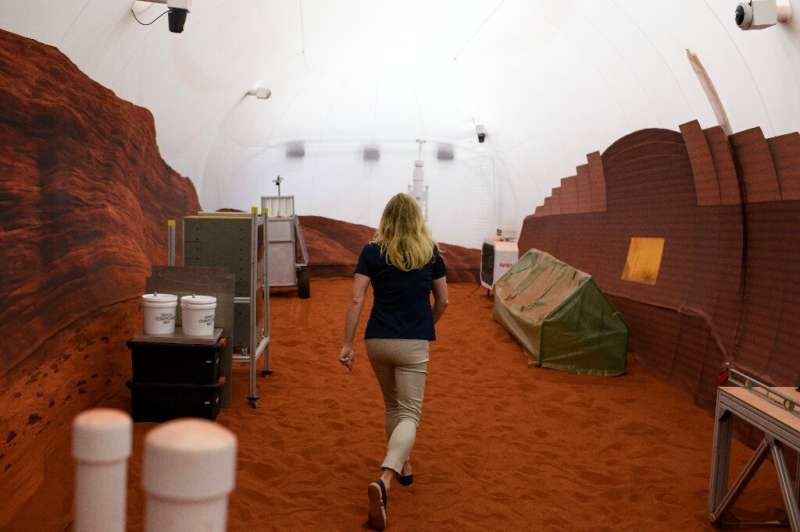
Living on Mars wasn't exactly a childhood dream for Canadian biologist Kelly Haston, though she'll soon spend a year preparing for just that.
"We are just going to pretend that we're there," the 52-year-old told AFP, summing up her participation in an exercise simulating a long stay on the Red Planet.
At the end of June, she will be one of the four volunteers stepping into a Martian habitat in Houston, Texas that will be their home for the next 12 months.
"It still sometimes seems a bit unreal to me," she laughs.
For NASA, which has carefully selected the participants, these long-term experiments make it possible to evaluate the behavior of a crew in an isolated and confined environment, ahead of a real mission in future.
Participants will face equipment failures and water limitations, the space agency has warned—as well as some "surprises," according to Haston.
Crash of private Japanese moon lander blamed on software, last-minute location switch
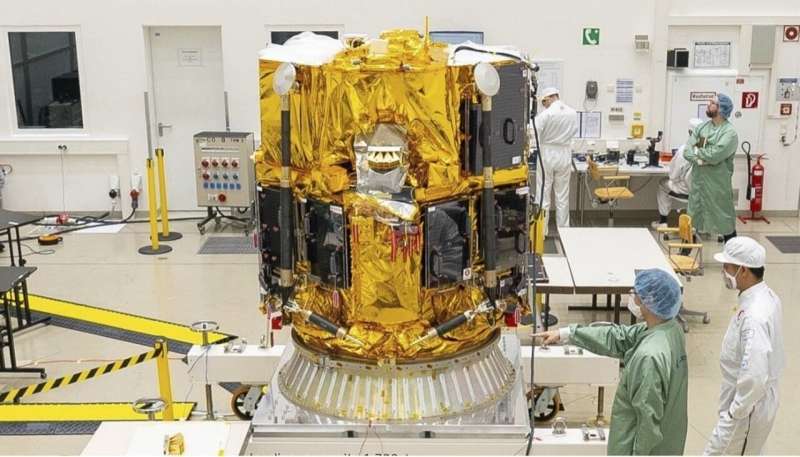
Over the moon: Dedication to lunar research pays off for China's Chang'e project
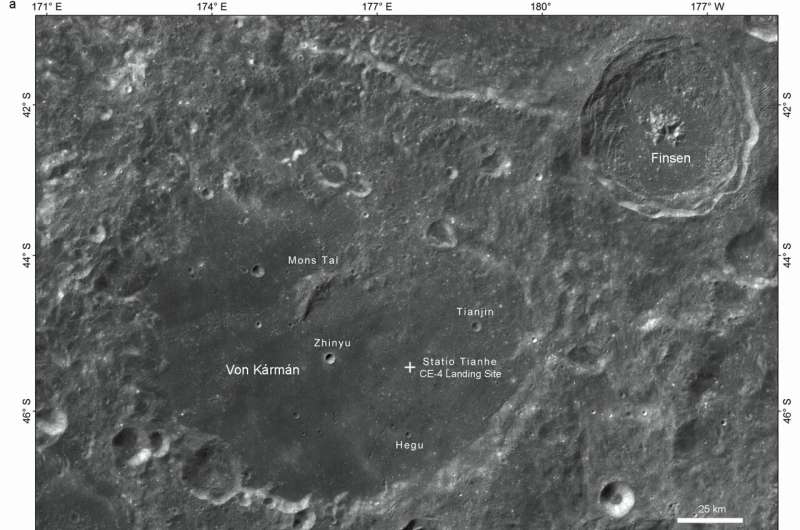
Since 2004, China has been pioneering many aspects of lunar exploration with the Chang'e project, of which all five missions were successful in obtaining new information about the moon.
China has been leading the advancement of lunar research and understanding with their Chang'e project since 2004 with no signs of slowing down. The information obtained from Chang'e missions has given humans a much deeper understanding of the moon, including the composition of its surface material, the moon's history and evolution, and mastering the three phases of unmanned lunar exploration: orbiting, landing, and returning. Gaining a more thorough understanding of the moon and its components can help with establishing research facilities on the moon to uncover more answers about Earth's only satellite.
Tree planting for the Huginn mission
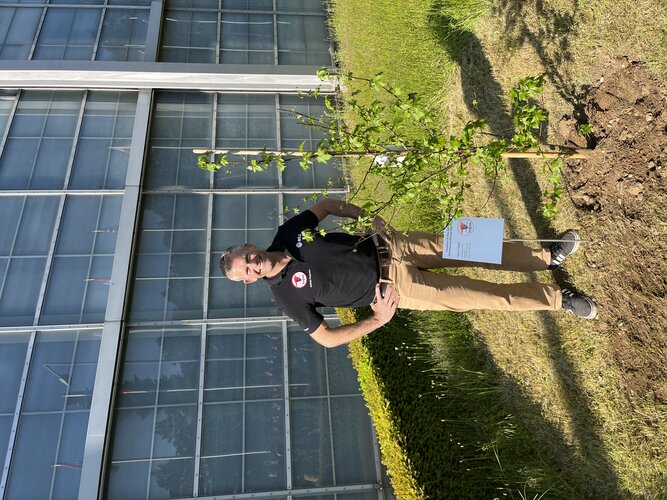 Image:
Tree planting for the Huginn mission
Image:
Tree planting for the Huginn mission Week in images: 22-26 May 2023
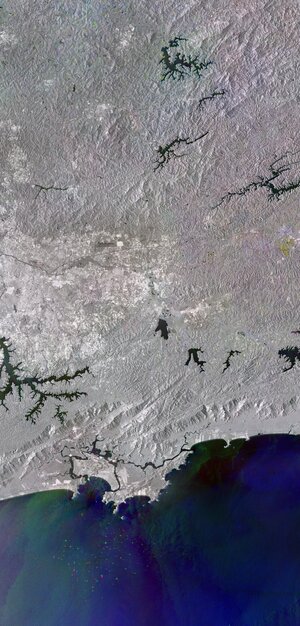
Week in images: 22-26 May 2023
Discover our week through the lens

